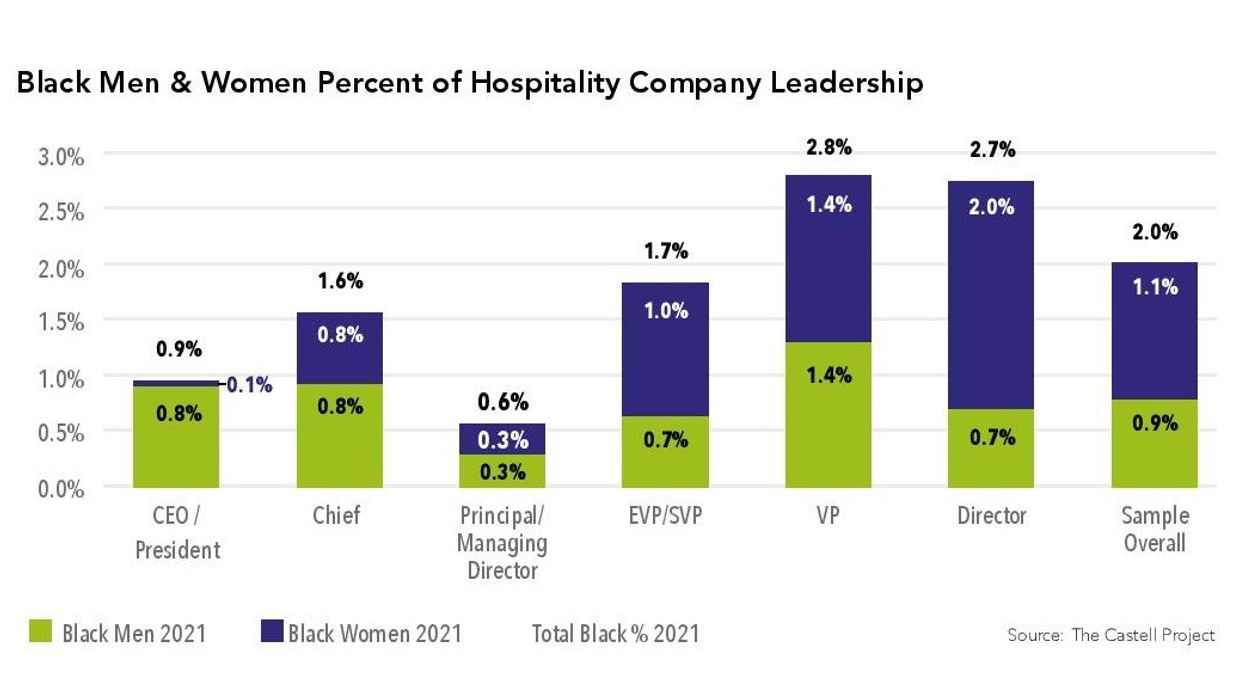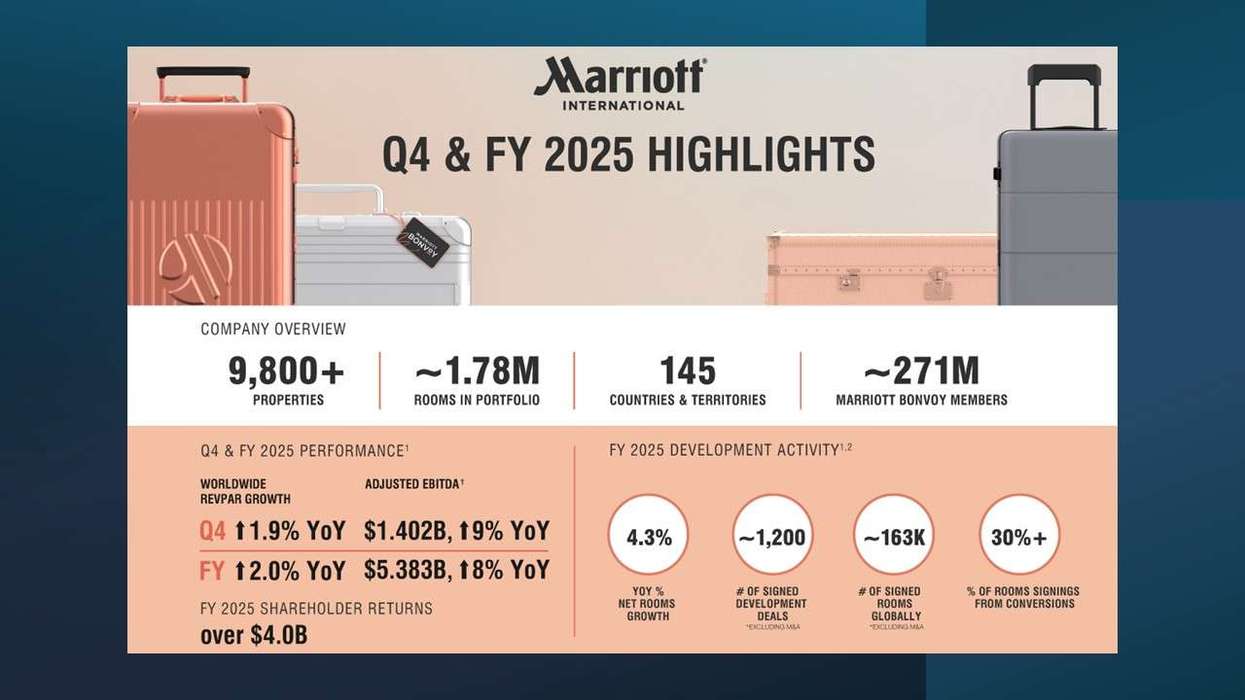BLACK PEOPLE MADE little progress in the hospitality industry over the past year, according to a report from diversity advocacy group the Castell Project. The COVID-19 pandemic was particularly hard on Black hotel workers and executives.
The Castell Project released the “Black Representation in Hospitality Leadership 2022” on Tuesday, which was International Women's Day. Much like last year’s report, it showed little progress for racial diversity in the industry.
For example, only 11 percent of the 671 hotel company websites reviewed for this study showed Black executives, director through CEO, prominently on their websites in 2021, down from 2019. Those Black executives represented just 2 percent of all hospitality industry executives on the websites reviewed.
“Black representation in leadership for the public face of the hospitality industry is not making the gains necessary to show opportunity to Black employees,” said Peggy Berg, founder and chair of the Castell Project. “In addition, Black employees disproportionately lost hospitality industry jobs during the Pandemic. Rebuilding its workforce will require significant change in the opportunities offered to Black hospitality employees if we desire to be viewed as an industry that genuinely promotes diversity, equality and inclusivity.”
Other highlights of the report include:
- Black employees in the hospitality industry were impacted disproportionately during the Pandemic. In 2019, Black employees made up 18.8 percent of the hospitality industry workforce (travel accommodations). In 2021, their share dropped to 13.6 percent, reflecting a 52 percent loss of jobs among Black hospitality employees. In contrast, across all industries, employment declined only 3.2 percent, and Black workers overall retained their share of jobs.
- Black women have stronger representation than Black men at the director level but are less likely to be advanced than Black men.
- Black representation in leadership is heavily weighted toward human resources, which employs 28 percent of Black employees at the director to CEO levels. Black employees are significantly less likely to find opportunity in food and beverage, construction/design or investment/development.
“We recognize the remarkable support of the many men and women working to advance Black representation in hospitality industry leadership,” Berg said. “However, as executive director of Tourism Diversity Matters Greg DeShields says, ‘We need to rethink working in the hospitality industry and rebuild trust. This requires hiring diverse talent into higher levels of management, acting upon the importance of having leaders who reflect the demographics of our customers and creating an inclusive workplace.’”
Castell Project’s analysts pulled the data in the report from the websites of hotel companies listed in the STR Directory of Hotel & Lodging Companies. Most entries were reviewed twice, once on the company’s website and then compared to an employee’s LinkedIn profile. Identification of race and gender was made by visual inspection, and self-identification could vary.
The Castell Project also recently released its 2022 Women in Hospitality Industry Leadership report.






